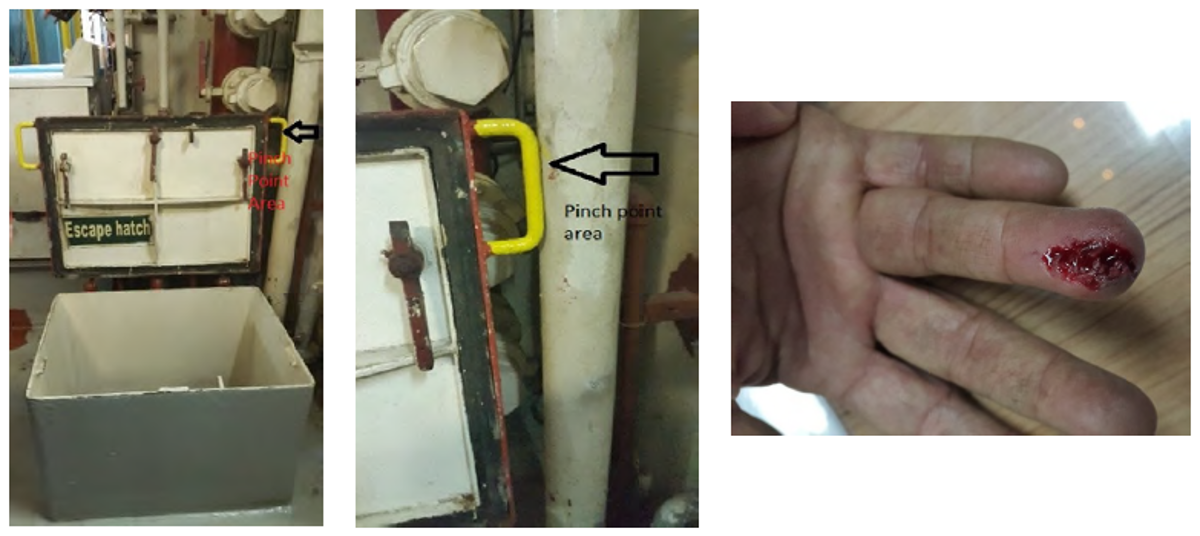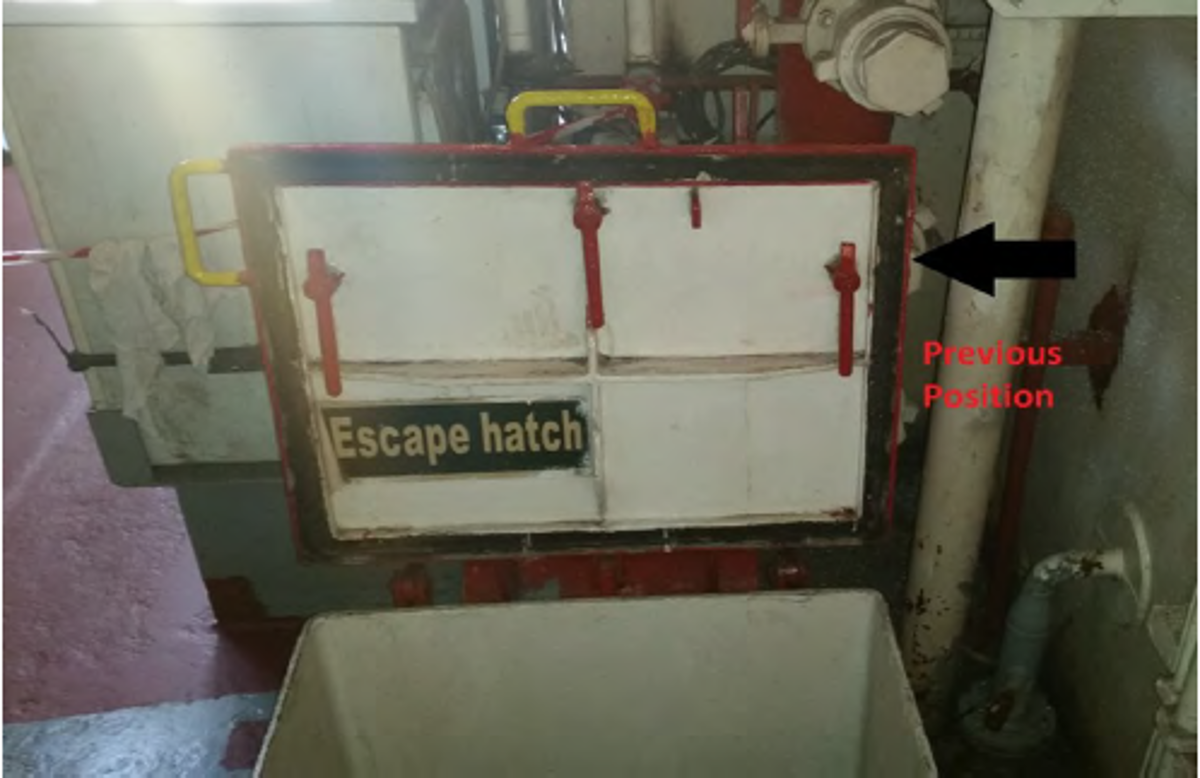Finger injury: pinch point
- Safety Flash
- Published on 5 February 2016
- Generated on 20 February 2026
- IMCA SF 04/16
- 2 minute read
Jump to:
A member has reported an incident in which someone suffered a finger injury whilst working on a hatch.
What happened?
The incident occurred when a crewman was working on deck, and needed to lift an escape hatch cover to the machinery spaces. He raised the hatch cover using one of the fitted handles, but was unaware of a pinch point created between the handle and an upright pipe behind – his finger was caught in this pinch point, causing an injury to the fingertip.

Our member’s investigation revealed the following:
- The handle was fitted in a manner that caused it to come into contact with the pipe when the hatch was opened.
- No-one had observed this pinch point, or highlighted potential injury risks presented.
- Because of a lack of observation or reporting of the pinch point, no warning signs had been placed.
Our member took the following actions:
- The injured person received immediate first aid on-board and was then sent to hospital for medical check-up.
- The hatch handle was moved to a new location (seephoto), therefore removing the pinch point and associated hazards.

The following important lessons were learnt:
- Even when conducting ‘routine’ tasks, or tasks which appear to be low risk, remain aware of all safety impacts and potential hazards.
- When modifying or moving existing equipment, or adding new equipment or fittings, ensure that this work does not actively create new hazards, such as pinch points, obstructions or tripping hazards. If there are concerns that such planned works could create hazards, these concerns should be raised with the appropriate authority.
- If you observe any potential hazards created within the work space, these should be recorded using safety observation and effective corrective action should be taken to reduce the risks.
- When an incident occurs, it is essential to take quick, effective corrective actions to avoid the incident happening again – this was done in this case, and the vessel crew have completely removed the hazards by moving the handle.
Related Safety Flashes
-
IMCA SF 05/12
8 June 2012
IMCA Safety Flashes summarise key safety matters and incidents, allowing lessons to be more easily learnt for the benefit of the entire offshore industry.
The effectiveness of the IMCA Safety Flash system depends on the industry sharing information and so avoiding repeat incidents. Incidents are classified according to IOGP's Life Saving Rules.
All information is anonymised or sanitised, as appropriate, and warnings for graphic content included where possible.
IMCA makes every effort to ensure both the accuracy and reliability of the information shared, but is not be liable for any guidance and/or recommendation and/or statement herein contained.
The information contained in this document does not fulfil or replace any individual's or Member's legal, regulatory or other duties or obligations in respect of their operations. Individuals and Members remain solely responsible for the safe, lawful and proper conduct of their operations.
Share your safety incidents with IMCA online. Sign-up to receive Safety Flashes straight to your email.